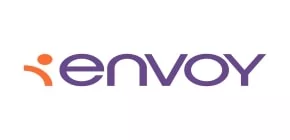- in United States
As the fiscal year (FY) 2023 H-1B cap season quickly approaches, employers and employees are starting to prepare for the H-1B petition process. Despite ongoing uncertainties that may affect the FY 2023 H-1B cap season, especially the COVID-19 pandemic, this upcoming H-1B cap will largely mirror the FY 2022 cap season in many respects.
Additionally, the 2023 fiscal year will see the return of the electronic registration process, which was launched in 2020 and has been well-received by applicants since its debut. According to USCIS, users indicated high satisfaction with the electronic registration process during FY 2022, with an average score of 4.87 out of 5.
On Jan. 28, 2022, USCIS announced that the initial registration period will run from noon (EST) on March 1, 2022, until noon (EST) on March 18, 2022.
H-1B Cap Season Rules Stay the Same
In FY 2023, it appears that many of the rules that were in place for the FY 2022 season will stay the same.
The proposed H-1B final rule that would have changed the H-1B selection process from a random lottery selection to a process that favors higher wages will not be implemented. The courts overturned the proposed final rule, and it was consequently set aside in September 2021. Additionally, the proposed final rule has been eliminated from the Federal Register.
As such, we anticipate the FY 2023 H-1B cap season proceeding as normal.
RFE Issuance
As before, USCIS is still issuing requests for evidence (RFEs). However, the volume of RFEs being issued has declined in the past few years. According to USCIS data, the number of petitions with RFEs started to decline after FY 2019, when 40.2% of H-1B petitions received RFEs. That number dropped to 28.8% in 2020, and it fell again to 16.2% in FY 2021.
The Importance of Starting Early
Another trend likely to continue in FY 2023 is the need to start the H-1B process early. Delays are still expected throughout the application process due to many factors, including the COVID-19 pandemic, budgetary constraints, potential government shutdowns and more. As the Department of Homeland Security (DHS) Office of Inspector General notes, USCIS is still experiencing significant backlogs in application processing for H-1B applications and other immigration services.
HR teams are encouraged to start gathering necessary data and documentation well in advance of the electronic registration deadline. In the past few H-1B cap seasons, USCIS opened the electronic registration period in March. As such, HR teams should consider starting to work with their company's stakeholders and legal teams in January and February to avoid delays. Doing so could help create a less stressful H-1B cap season.
Benefits of Immigration Technology
As flexible work conditions continue to be the norm at the start of 2022, it's now more important than ever before for HR teams to consider utilizing technology during the immigration process.
Technology can help HR managers and teams streamline and organize the H-1B petition process in many ways, such as:
- Facilitating HR and attorney correspondence in communication centers
- Disseminating notifications faster, and
- Keeping track of important deadlines
HR managers are still encouraged to prepare in advance for H-1B cap season by identifying employees who need an H-1B, gathering all relevant documentation, preparing LCAs and more.
While there are no significant changes for the FY 2023 H-1B cap season, Envoy will continue to provide updates and additional information on our Resources Center.
Subscribe to the Envoy Immigration Blog to receive all the information you need for a successful and less stressful H-1B cap season.
Originally published 3 February 2022
The content of this article is intended to provide a general guide to the subject matter. Specialist advice should be sought about your specific circumstances.


